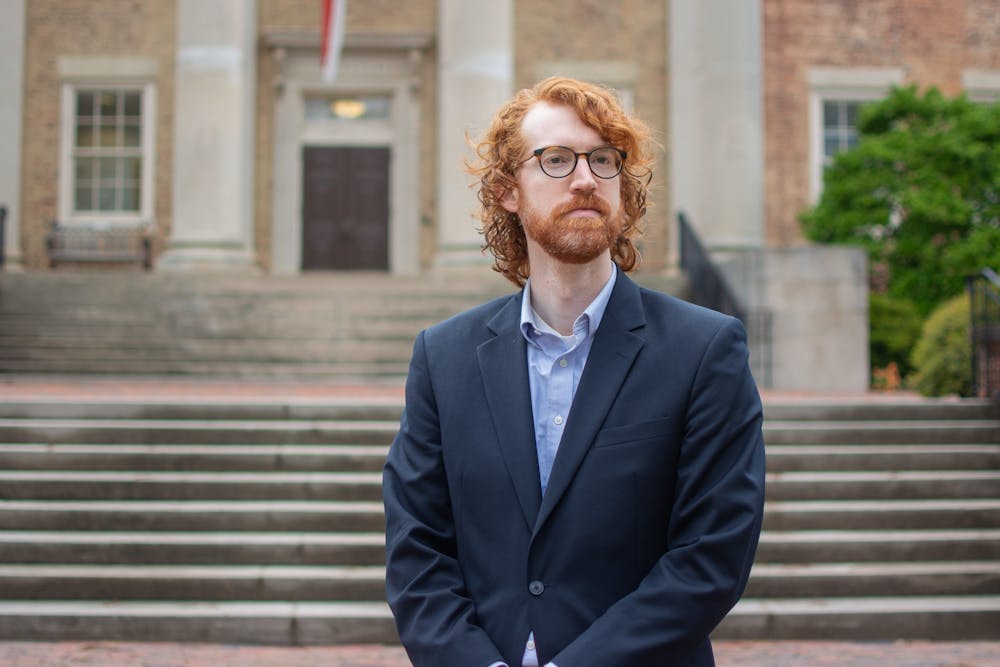Through his listening tour of over 30 departments, planning of social events and coordinating the Graduate and Professional Student Appreciation Week, some believe he has fulfilled his goal.
“He was really focused on creating more opportunities for students from across campus to connect with each other, and we saw that in the increase in social events that were held,” Hawkinson said.
Emily Youree, Nollert's chief of staff and a fourth-year English and comparative literature PhD student , expressed her pride in the administration’s efforts to facilitate community connections.
“We’ve done a good job of increasing engagement among both graduate students and professional students, which is a pretty diverse group with diverse needs,” she said.
But Nollert said increasing community engagement is a two-way street, and students also must be willing to take the leap and try new things.
“Community and feeling connected to people is the root of wellness for so many of us,” he said. “And we've got to offer more, but students also have got to take advantage of more and put themselves out there.”
Additionally, when students prioritize engaging with each other and the community at large, student government can best serve the interests of everybody on campus, Nollert said.
In his opinion, student government is the most powerful tool students have to advocate for change on campus.
“It is also the one vehicle that we have to control money around campus, to have conversations with administrators, to set policy,” he said. “And I think it's the most effective vehicle that we possess to exert power.”
Graduate student stipend increases
Another key aspect of Nollert’s term has been his advocacy for graduate student stipend increases. His efforts came to fruition when the Faculty Council unanimously passed a resolution supporting pay increases for graduate students on Nov. 4 and the University implemented an increase at the start of 2023.
At the beginning of Nollert’s term, doctoral students were paid a minimum stipend of $17,000. Now, the minimum stipend is $20,000.
To get the day's news and headlines in your inbox each morning, sign up for our email newsletters.
But Nollert still believes there are improvements to be made within this funding. His long-term goal was to equate the minimum stipend to the cost of attendance as calculated by the University, which he says is around $25,000.
“It was the largest ever one time stipend increase, double digit percentage, but it's not a full achievement of the goal that I hope we will continue to move toward over the next years,” he said.
Youree and Hawkinson both expressed their excitement at the stipend increase, but like Nollert, they recognize there is still room to grow.
Hawkinson described her feelings at the increase in one word: “relief.”
“I've taken on a couple of other jobs throughout my time at Carolina to make sure that I can pay my rent and buy groceries and things like that,” she said. “So knowing even just a little bit of a stipend increase was coming really took some of that stress away for me.”
Advice and transition
As the time nears for Nollert’s administration to transition power to Hawkinson, Nollert said he has one fundamental piece of advice for the incoming GPSG president elect.
“Spend as much time on relationship-building as you possibly can. It will pay off,” he said.
Although Nollert will not be serving within the GPSG anymore, Hawkinson said she’s confident that he is going to be an important ally and resource for her administration.
And most importantly, she said she is excited for what is to come at the forefront of her administration.
“I had a great experience working within the GPSG this last year, and my biggest goal is just to continue the momentum that Theodore has built,” she said.
@adelepmorris17
university@dailytarheel.com



